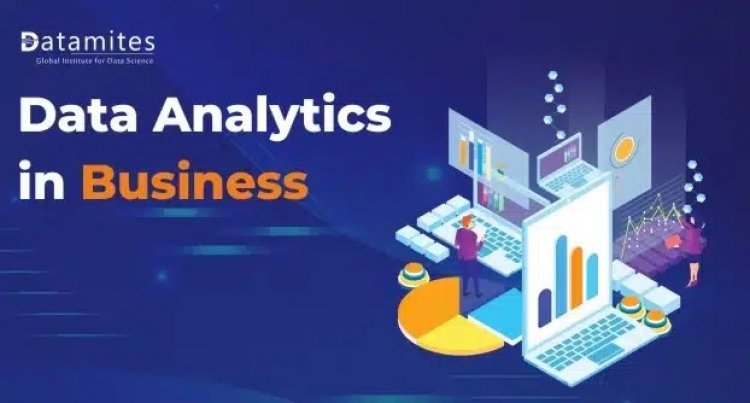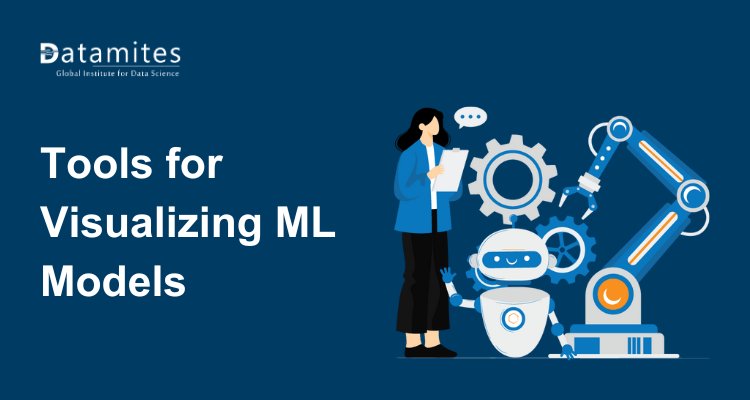Data Analytics in Business – How does it benefit Business Operations?

As per the ResearchandResearchMarket, in the forecast period 2023–2027, the data analytics market is predicted to grow by $21436 million at a CAGR of 13.84%. Given the widespread application of contemporary technology in commercial operations, the growing demand for increased business performance, and an exponential rise in data, it’s no surprise that data analytics stands a gain!
About Data Analytics
The science of studying unstructured data in order to draw inferences about it is known as data analytics. Numerous data analytics approaches and procedures have been mechanized into mechanical procedures and algorithms that analyze raw data for human consumption. Different data analytics methods are used for the process of diving deep into the chunk of unstructured data and they are description analytics (what happened), diagnostic analytics (why something happened), predictive analytics (what will happen now), and prescriptive analytics (actionable insights on what should be done next).
The vitality of data analytics lies in its ability to maximize the earning potential of businesses. By finding more competitive ways to conduct business and integrating them into their business plan, companies can aid in cost savings. Data analytics can also be used by businesses to check consumer preferences and trends, enhance corporate decisions, and build different, better products and services.
In a world where gathering data and statistics is becoming increasingly important, data analytics helps individuals and organizations ensure the accuracy of their data. Using a variety of tools and approaches, a set of informative, educational insights that direct decision-making and careful management.
Refer this article: Support Vector Machine Algorithm (SVM) – Understanding Kernel Trick
What makes data analytics an inevitable part of business operations?
Organization around the globe now considers data analytics to be a critical component in business processes. For executives to make the best decisions and guide their company toward success, they need to have a thorough understanding of their industry, the market, competitors, and customers.
The real shocker is that we are now creating more data than ever before. Forbes claims that the main motivator for the majority of organizations today is data analytics. Yet the downside of having a wealth of information at the touch of a finger yet struggling to make a leap forward is essentially going to have a major impact on the business’s functioning.
There is no denying the benefits of data analytics for businesses of all sizes and types. It enables marketers to design content that is suited to audience intent and create seamless customer journey maps. Accessing tools that can analyze a large amount of data quickly is the real challenge. Numerous businesses today have the capacity to record oodles of data, but often lack the ability to efficiently process and analyze it.
There are multiple techniques and trends being used today to promote companies in devising their action plan and driving their expansion. Technology is advancing in the direction of offering optimum solutions, but these technologies can only benefit businesses if they are rightly implemented. Data analytics has become a requisite for businesses for boosting company growth, market rate, and revenue as well.
- Nurturing clients
Retaining clients and expanding your clientele are essential for business success. A company won’t succeed in the long run without happy customers. Finding important patterns about the clients and advocating the same are critical functions of data analytics for business. This stabilizes the customer’s perspective and increases customer retention.
- Setting Performance goal
Setting attainable goals is the main factor to consider when using data analytics for businesses. Without data analytics, this cannot be accomplished. It’s advisable to develop goals with the use of accurate information rather than speculating on them if you don’t want your business’s objectives to alter frequently. Data analytics is useful for compiling records and analyzing historical data to identify trends. Setting appropriate goals will be aided by these actions.
- Better Customer Targeting with Business Analytics
A McKinsey & Company study found that leveraging data to make wiser marketing decisions can increase marketing productivity by 15% to 20%. Target calculates a score based on a customer’s purchases that denotes the possibility of pregnancy; the business uses purchase information to decide what kinds of coupons and exclusive discounts to email to a customer’s address.
Large amounts of data may be used by businesses for predictive analytics to help streamline a customer’s interaction with a brand. Finding the right technologies to analyze your clients’ purchasing and online browsing behaviors and putting them in place to give precise and useful information may pique their buying instincts and implant your brand in their minds.
Read this article: What is a Gradient Descent?
- Accurate Customer Service
Since customers are the heirs to the throne, most businesses strive to comprehend what they want from them. They can now gain a deeper understanding of client behavior through the use of data analytics and artificial intelligence.
The majority of firms employ data analytics in one way or the other for customer services. Metrics like call volume or holding time can be tracked flexibly. However, businesses may also employ data analytics to gain a deeper understanding of their consumer’s demands, preferences, and levels of satisfaction, automate tasks like credit card processing and fraud detection, and more.
- Greater Efficiency in Business
By assisting businesses in identifying areas where it is not efficient, data analytics can help them become more so. Businesses are able to gather a lot of data thanks to data analytics, which can then be examined to find areas where the business model is weak. Companies frequently overlook inefficiency because they are too preoccupied with other issues to see it as a problem. Inefficiency, however, can seriously reduce profitability and even result in the failure of the company.
- Risk Control using Data Analytics
Risks are present in every aspect of the business. Theft by clients or staff, uncollected accounts receivable, personnel security, and legal accountability are just a few of them. A business can use data analytics to help it identify risks and take preventative action.
A retail chain, for instance, might employ a propensity model, a statistical tool that forecasts future actions or occurrences, to identify the stores that are most susceptible to theft. Following that, the corporation may use this information to determine the level of security needed at the stores and whether or not it should divest from any of them.
- Making Wiser Business Decisions
The ability to make better judgments is one of the key benefits of data analytics in business. Firms may benefit greatly from having a solid understanding of their history, present situations, and future potential. Businesses that employ data analytics are better able to anticipate the needs and behaviors of their clients, increasing the likelihood that they will offer those services. This way the business can flourish by selling more of what the customers actually need.
- Automated Functioning
The delivery of business insights necessary for making timely choices can be delayed by using conventional analytics tools and procedures. Frequently, data is gathered across various platforms and applications. Businesses of all sizes and in all sectors can drastically improve their operations by automating analytics activities and putting them in the cloud.
With a contemporary analytics solution, everything is automatable. Choose a few parameters for the topic you want to investigate, the model you want to use, and the column you want to predict, and the solution will take over. Data can be ingested from a variety of platforms, applications, and clouds. It can be collected, cleared up, prepared, transformed, and evaluated for predictions automatically, speeding up processing and lowering the possibility of human-caused errors.
Refer this article: Exploratory Data Analysis
- Data analysis to locate commercial opportunities
Data analysis boosts productivity while also assisting in the identification of new business opportunities, such as underutilized clientele segments, that could otherwise go unreported.
Computer models built on the basis of data analytics help companies spot trends in customer purchases and give a clear picture of which things should be highlighted or updated. Analytics may assist you in identifying important areas of concern that are harming your company’s ability to make a profit, whether it be a production issue, a customer service issue, or a weakness within your staff. In a nutshell, the prospect for Growth and Profit increases and is based more on intelligence.
- Observe data to improve cybersecurity
Each and every firm is concerned about data security. Today’s company leaders are particularly concerned with risk management and compliance. In terms of data privacy and usage compliance, more data also entails greater risk. Large organizations that access internal and outside data must therefore implement risk management analytics to safeguard their resources, clients, and reputation.
Organizations can utilize data analytics to identify the causes of prior data breaches by studying and displaying pertinent data. The IT department, for instance, can use Data Analytics tools to parse, analyze, and visualize Audit Logs to determine the nature and origins of an attack. This information can help IT identify problems and apply patches.
- Increase efficiency by streamlining processes
The development of new, streamlined workflows that improve operational efficiency is done by business leaders using data analytics to find ineffective internal processes. By assisting managers in evaluating the efficacy of existing workflows, analyzing the results of the processes, automating new workflows, and continuously improving them, data analytics contributes to better company management. Leaders can also assess processes’ burden, financial drain, and usability using data. Leaders may speed up all of their digital initiatives by switching from cumbersome manual workflows to efficient ones.
Also read this article: Introduction to Boxplots
Takeaway
It is difficult to deny that we fall back on data in today’s world, particularly in the corporate sector, whether it is good news or not. any organization’s use of data has morphed into its bloodstream, and this trajectory will only persist in the nearish future.
If you’re looking into a career in data analytics, DataMites offers courses in collaboration with NASSCOM, JainX, and IABAC, all of which are well-known internationally. We provide training in data science, artificial intelligence, machine learning, Python, and more in addition to data analytics! With a DataMites data analytics certification, you’ll have the knowledge and abilities you need to support real-world corporate planning and decision-making.
What is HR analytics?
Certified Data Analyst Course







